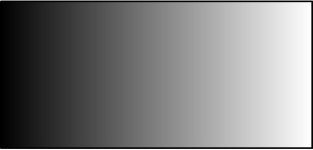I see two very different groups claiming the "Feminist" name. I strongly support the one and strongly oppose the other, but I don't know what label to call each of them to distinguish them.
First there is the notion that women should have all of the legal rights that men should have and should not be discriminated against because of gender. This is about equality of opportunity for all, regardless of gender. This is the notion that women can work, or stay home and be housewives, or be the sole breadwinner with house husbands, can have casual sex to whatever degree they wish or remain virgins forever, and can go wear hijab or go topless if they like. It is about freedom. I can get 100% behind this kind of feminism. Women should not be discriminated against for being a woman. There should be no barriers to women becoming doctors, lawyers, C.E.O.s and any other job they seek and win by merit. And they should not be patronized or treated paternally. Nor should their agency be taken from them or should they be held less responsible due to their gender. Women are to be treated as individuals with their gender being irrelevant when it comes to anything not specifically tied to it (issues such as abortion, etc).
This sort of feminism/egalitarianism is what I consider basic human fairness, but is lacking in much of the world to various extents, and political battles need to be won to win it. Usually but not always the enemy is religion. Sometimes, ironically, the enemy is the second type of feminism's demanding attention be drawn away from this.
The second of feminism, that is very much the opposite of the above, pushes for rather than against gender bias and double standards. It doesn't push for individuals to be treated equally regardless of gender, but instead for people to be treated according to the gender group they are identified with. It is paternalistic towards women, treating them as fragile and demanding they be seen through a lense of victimhood, and in many situations as without having equal agency. Yet ironically it rails against "the patriarchy". This ties into the marxist ideas of oppressor group (here all men) and oppressed group (here all women).
I believe the second type of feminism gives the word "feminism" a bad connotation. So I would like to clearly distinguish between the two types and I don't know the labels to do that. What do you call the first type? What do you call the second type? And how can I show support for the first but opposition to the second in just a few words?
First there is the notion that women should have all of the legal rights that men should have and should not be discriminated against because of gender. This is about equality of opportunity for all, regardless of gender. This is the notion that women can work, or stay home and be housewives, or be the sole breadwinner with house husbands, can have casual sex to whatever degree they wish or remain virgins forever, and can go wear hijab or go topless if they like. It is about freedom. I can get 100% behind this kind of feminism. Women should not be discriminated against for being a woman. There should be no barriers to women becoming doctors, lawyers, C.E.O.s and any other job they seek and win by merit. And they should not be patronized or treated paternally. Nor should their agency be taken from them or should they be held less responsible due to their gender. Women are to be treated as individuals with their gender being irrelevant when it comes to anything not specifically tied to it (issues such as abortion, etc).
This sort of feminism/egalitarianism is what I consider basic human fairness, but is lacking in much of the world to various extents, and political battles need to be won to win it. Usually but not always the enemy is religion. Sometimes, ironically, the enemy is the second type of feminism's demanding attention be drawn away from this.
The second of feminism, that is very much the opposite of the above, pushes for rather than against gender bias and double standards. It doesn't push for individuals to be treated equally regardless of gender, but instead for people to be treated according to the gender group they are identified with. It is paternalistic towards women, treating them as fragile and demanding they be seen through a lense of victimhood, and in many situations as without having equal agency. Yet ironically it rails against "the patriarchy". This ties into the marxist ideas of oppressor group (here all men) and oppressed group (here all women).
I believe the second type of feminism gives the word "feminism" a bad connotation. So I would like to clearly distinguish between the two types and I don't know the labels to do that. What do you call the first type? What do you call the second type? And how can I show support for the first but opposition to the second in just a few words?


